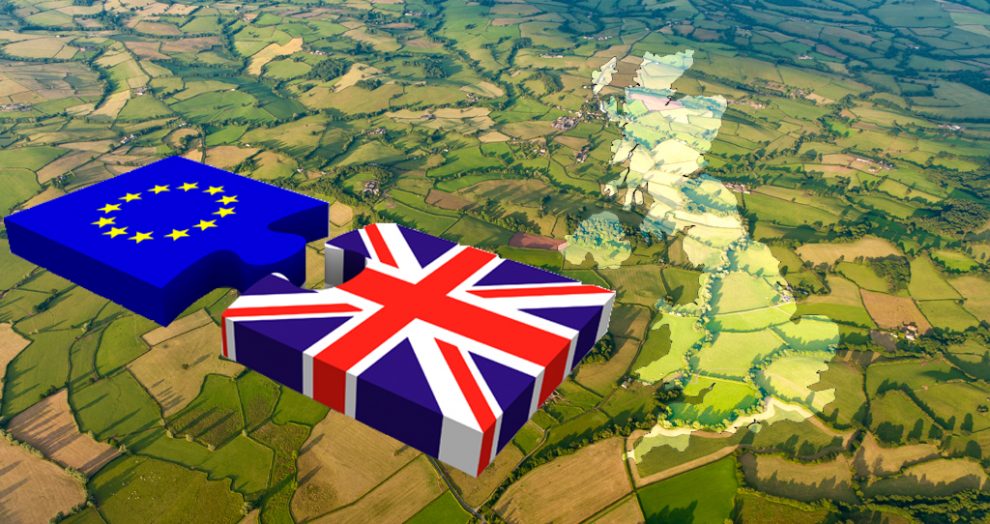By Award Winning Herald Columnist, Matthew Paul
Well, you did it, you bastards. You won. At 11pm today, the UK will have left the European Union.
This hasn’t occasioned the cataclysm that –until 13th December– the turbulent Brexit process might have led us to expect. The weeks since Boris Johnson’s thumping majority made Brexit an inevitability have been an anticlimax on the scale of The Godfather Part III. Three and a half years of high political drama have ended in six weeks of Brexit bathos.
On Wednesday, our representatives in the European Parliament packed up their desks, emptied their lockers and –heavy of heart and misty of eye– signed off their final, Brobdingnagian claims for expenses. Pro-EU MEPs linked arms, waved EU flags and sang a maudlin rendition of Auld Lang Syne. In return, EU president Ursula von der Leyen told the UK she loved us and always will.
The love-in lasted about three minutes, until Nigel Farage, flanked by his gang of gruesomes, stood up to crow. In the graceless and disruptive manner he has diligently maintained over twenty years in the Parliament, Nigel rubbed fellow MEPs’ noses in the Brexit Party’s mess until the mike was switched off. Then his cohort started waving little Union flags so enthusiastically you might have assumed Prince Harry had come back. Divorced.
The European Union (Withdrawal Agreement) Act 2020 passed through Parliament without a murmur of disapproval, a court case, any perversions of Parliamentary procedure or even a self-indulgent ORRRRDDEEEEEERRRRR from the excellent and austere new Speaker, Lindsay Hoyle. At sundown, EU flags will be taken down from public buildings around the UK and furled forever, in a melancholy echo of the last time Britain’s influence in the world seriously declined. All except in that bastion of Brexit resistance, the Scottish Parliament, where Nicola Sturgeon –under what legal authority it is unclear– has decreed that the twelve stars will stay put. Mark Francois no doubt imagines himself jogging up to Edinburgh with a crack TA troop to tear it down from Holyrood in a reverse Iwo Jima.
South of Hadrian’s Wall, the mood amongst Remainers is one of defeated realism. Re-joining on the terms available to accession countries is not a serious option; the EU has gone and it ain’t coming back. Even Plaid Cymru –after getting utterly pasted in December’s election, largely because their ur-Remainy stance went down like a cup of cold sick in the valleys– aren’t clinging to dreams of readmission to the continental club.
Now, having got your damned Brexit, you now have to work out what to do with the thing. What was the point of leaving the EU? There are some fairly compelling reasons to be out of Europe if you incline to the Corbynite hard left, because the Commission always had unhelpful things to say about confiscatory taxation and state aid for lame duck nationalised industries. Get Brussels out of the way and you are only a few strands of barbed wire and an empty supermarket away from the usual sort of socialist paradise.
On the right, the intellectual arguments of economically liberal Brexiters have always had force. There can and will be advantages to an economy where barriers to free trade are removed, where business is freer to hire and fire, and where innovation in our tech, pharmaceutical and agri-business sectors is not restrained by regulation which adheres too closely to the precautionary principle. Intellectual arguments are all very well, but the difficulty is that this hasn’t typically been the kind of economy or society around which a political consensus has settled.
Before the General Election, in a political landscape where a powerless Prime Minister was bossed around by a hopelessly divided Parliament, it was hard to expect that much could be achieved by leaving the European Union. Now, we have a PM more powerful than any British politician since Tony Blair in 1997; with just as much of a mandate to change the country. To benefit economically from Brexit, he will have to be prepared to do things that are very, very unpopular.
Round these parts, things that damage the livelihoods of farming communities are likely to be pretty unpopular. But this week we saw Boris inviting a stampede of half-starved, flystruck Ugandan cows into the UK meat market. “I have just told President Museveni of Uganda” he said –following a conversation quite different from the sort of Ugandan discussions with which our Prime Minister is usually associated– “that his beef cattle will have an honoured place on the tables of post-Brexit Britain.” What is good news for herdsmen around Kampala won’t be so well-received in Knighton, Keswick or Kirkaldy.
Boris will also have to decide whether we are a country closer to Europe or America. If we choose the latter, and unless the US Democratic Party seriously ups its game, we will be saddled with another four years of having The Donald as our psychopathic cell mate in a prison we built for ourselves. It’s in our interest to keep him happy, but this week’s decision to allow Huawei –the tech equivalent of coronavirus– to supply hardware for Britain’s 5g mobile networks was like carelessly reaching for the remote control in the middle of one of Trump’s favourite TV shows. There are worrying noises coming from the top bunk, as of someone sharpening a shiv to use on us in the first round of post-Brexit trade talks.
So, residents of workless Labour-voting constituencies in South Wales; farmers who didn’t like filling in the subsidy forms; anyone who hates being bossed around by foreigners but doesn’t count Donald Trump amongst their number. You voted for it. You got it. It’s here. Enjoy it; it’s going to be a wild ride.

















